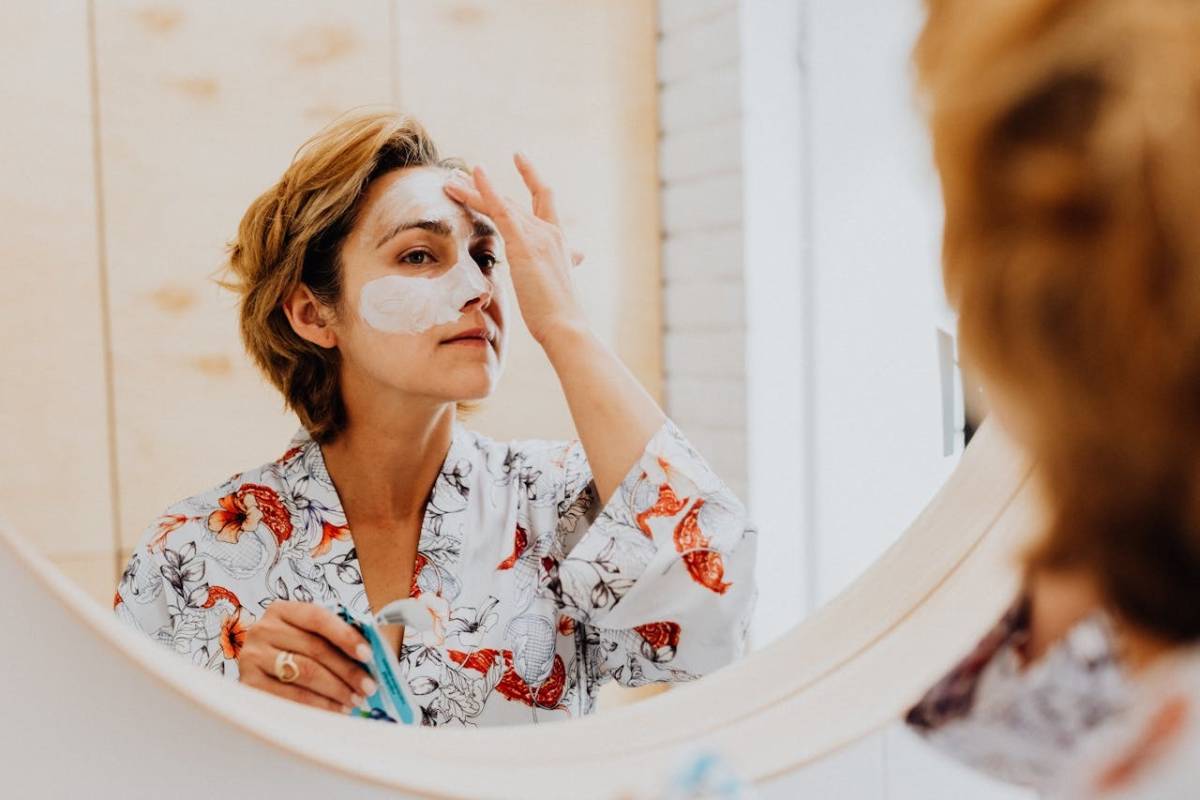Stop the Clock or Let it Tick? The Pro-Aging vs. Anti-Aging Dilemma

Ageing has become the latest horror story for women as young as 25. What once was a natural part of our development and growth, has now become a thing to avoid by the plague thanks to celebrities that do everything in their power to look 10 years younger than their actual age.
The saying a lady does not reveal her age has become quite literal, with signs of ageing being tackled from the first sign of fine lines. Whether it's due to financial availability or the simple choice of wanting to age gracefully, there is a clear divide online between those who choose to let the clock of time take its course, and those who do everything in their power to escape it.
But should we be following one over the other, and does one choice have a more negative impact than the other? Truthfully, the answer lies within our personal decisions. Unfortunately, online media and widespread marketing like to steer in either direction. From natural ageing creams designed to simply nourish your skin, to full facelifts in London with renowned surgeons, what should we be doing to look most like ourselves once we reach a certain age?
The Anti-Aging Movement: Fighting Time
So, what does anti-ageing mean? The clue is in the name. It’s the physical prevention of getting older, whether through your skincare or yoga to keep your muscles and limbs flexible. The key belief associated with anti-ageing is the idea that the ageing process can be slowed, if not reversed. There are several ways people actively implement anti-ageing into their routines, here’s just a few of the most popular methods:
- Skincare, Botox, and cosmetic procedures
- Supplements, diet, and exercise
- Medical advancements like gene therapy and longevity research
In certain cases, there are science-backed studies that support the ageing effect that some of these methods present. However, it is important to note that there are a handful of unregulated practitioners who offer ‘anti-ageing’ services with little to no credentials, posing a risk to the patient undergoing cosmetic enhancements. With this, it’s important to highlight the pros and cons of ageing:
Pros:
- Extended perceived youth: The primary benefit of anti-ageing in the appearance of prolonged youthfulness. While ageing is natural, perceived attractiveness does derive from our youthful features, which diminish with ageing. For example, our skin loses elasticity due to collagen depletion, therefore you may experience excess skin surrounding the face. A facelift may be the best anti-ageing procedure to target this.
- Better health: contrary to the beliefs of pro-agers, some health benefits come with anti-ageing methods. For example, the upper eyelid can similarly be subjected to collagen depletion, and become excessively saggy, causing vision impairment. Upper eyelid surgery known as blepharoplasty removes this excess skin meticulously, not only improving vision but also creating a much more revitalized, youthful appearance.
- Confidence boost: Last but certainly not least, confidence can be significantly improved with anti-ageing methods, should your lack of confidence derive from your again features. Confidence is key, and when we feel our best we tend to outwardly show up as the best version of ourselves.
Cons:
- Unrealistic beauty standards: The beauty industry and media often glorify youth, creating an unattainable standard of "ageless perfection." Society often equates beauty with youth, making aging feel like something to "fix" rather than embrace.
- High costs: Anti-aging treatments and products are a booming, billion-pound industry, but they come with a hefty price tag.
The Pro-Aging Perspective: Embracing Time
On the flip side of anti-ageing, we have pro-ageing. Pro-ageing has become a prominent movement over the last few years, with more women fighting back against society's standards for women as they age.
Pro-ageing embraces the natural progression of ageing and welcomes all that comes with it fine lines, sagging skin, the whole lot. Pro-agers celebrate the ageing cycle and encourage others to do the same. So, what are the core principles of pro-ageing? Here’s just a few:
- Self-acceptance and confidence at every age
- Focus on overall well-being rather than appearance
- Challenging societal pressure to stay young
It’s important to note that pro-agers are not against anti-agers, however, they wish to remind women primarily that they do not need to fit the ‘mould’ that society seems to preset. The young women of today woefully underestimate the beauty in aging, and do everything they can at a younger and younger age to stop the aging process in its tracks. But pro-ageing it’s perfect, here's a few of the procs and cons:
Pros:
Mental peace: If you are someone who has converted from stressing about ageing to setting your mind free and accepting the natural ageing cycle, it can be a huge weight off your shoulders. Feeling downhearted regarding aging can lead to chronic stress and depression. Embracing your natural appearance can set you free from these metaphorical chains, and allow you to invest this time and energy into more meaningful things.
Cons:
Potential neglect of health: If you are someone who has avoided all things anti-ageing, you may be posing a risk to yourself For example, products like SPF may be advertised from an ant-ageing perspective, however, it is crucial to wear sunscreen daily to reduce the risk of skin cancer.
The Middle Ground: Aging Gracefully
Now you’ve heard both sides of the scale, which do you resonate with most? In truth, you can be both. Adopting a balanced approach to ageing is the best way forward. Follow the path that aligns most with your beliefs, without putting the other perspective down.
Your opinion as a young woman may change with age. In the same way as a woman who had clear signs of ageing and has undergone work, you can change your opinions and embrace ageing for what it is. Natural and beautiful.




















